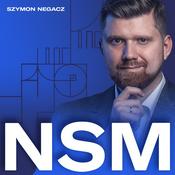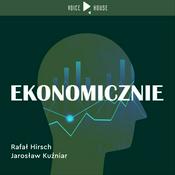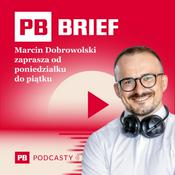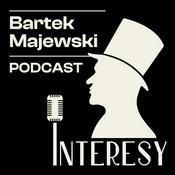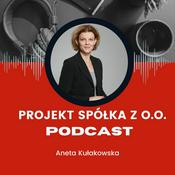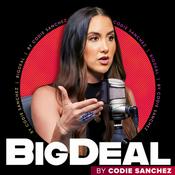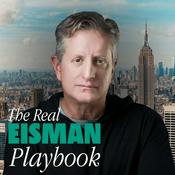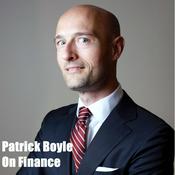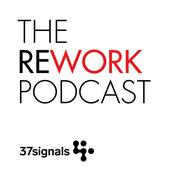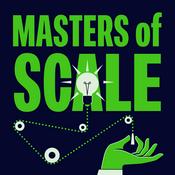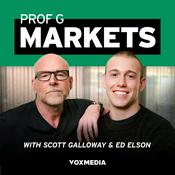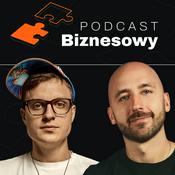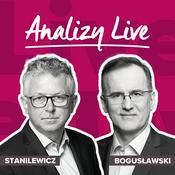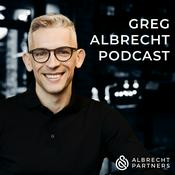477 odcinków
- Show from 01/23/26
Host Jeremy Schwartz and Professor Siegel discuss updates on the Fed chair race, government shutdown prospects, and delayed tariff rulings. The Professor sees strong economic momentum, rising productivity, and continued strength in value and small-cap stocks. (11:23) Jeremy continues the conversation with Dave Goodson, Head of Securitized Credit at Voya, who discusses bond market reactions to recent policy announcements, including the $200 billion GSE purchase program and its impact on mortgage-backed securities. The group explores trends in spreads, non-agency RMBS opportunities, policy shifts affecting the housing market, and global macro forces including Japan and Iran. They close with a focus on AI-driven infrastructure investments and how they are impacting securitized credit markets.
Dave Goodson is a managing director, head of securitized fixed income and a senior portfolio manager for non-agency and agency mortgage-backed securities, commercial mortgage-backed securities and asset-backed securities strategies at Voya Investment Management. Prior to joining Voya, he was a principal at an independent investment bank focused on asset-backed commercial paper transactions. Previously, Dave began his career as a vice president in Wachovia Securities’ asset-backed finance group, marketing and executing securitizations for the bank’s corporate clients. He earned a BS in management from the Georgia Institute of Technology
Voya: https://advisors.voya.com/
WisdomTree: https://www.wisdomtree.com/investments - Show from 09/16/26
Host Jeremy Schwartz and Professor Siegel assess recent market data, including mixed signals from CPI and PPI, speculation about Q4 GDP being between 2% and 5%, and jobless claims falling below 200K. Professor Siegel also discusses the Fed’s direction amid political distractions and sees continued momentum for small caps amid easing mortgage spreads. (22:32) Jeremy is joined by WisdomTree’s Jeff Weniger, Chris Gannatti, and Sam Rines to dive into market rotation, the AI narrative, and geopolitical developments. The group explores physical AI with Tesla, credit card rate caps and their implications on credit access, and how crypto and stablecoin regulations may disrupt traditional banking. They also cover a K-shaped economy reflected in early earnings reports and wrap with observations from Asia, the rise of Vietnamese EVs, and speculation on the U.S. revisiting a Greenland acquisition.
WisdomTree: https://www.wisdomtree.com/investments - Show from 09/01/26
Host Jeremy Schwartz and Professor Siegel discuss the strong jobs report, a surprising GDP revision from the Atlanta Fed, and the evolving political developments in Venezuela and Iran. The Professor also offers thoughts on Trump’s potential Fed chair picks, productivity growth, and AI's impact on markets. (17:09) Jeremy continues with Sam Rines to dive deeper into the geopolitics of oil in Venezuela and Guyana, how it impacts WTI pricing, and why refiners and MLPs may benefit. They explore defense and AI-related investment opportunities in Japan and Europe, potential tariff developments from the Supreme Court, and discuss the recent performance and positioning of gold and commodity markets amid inflation and geopolitical risk..
WisdomTree: https://www.wisdomtree.com/investments - Show from 02/01/26
Host Jeremy Schwartz and Professor Siegel discuss the strong start to 2026, noting positive holiday spending, a dip in jobless claims, and the potential for a 3% Q4 GDP growth. Professor Siegel outlines three key market events to watch in January: the risk of a government shutdown, the Supreme Court’s decision on tariffs, and the selection of the new Fed chair. (12:34) Jeremy continues with guests Sam Rines and Jeff Weniger, who delve into geopolitical tensions impacting oil markets, the Fed’s potential policy direction, and the outlook for global equity markets. The group discusses AI competition between China and the U.S., emerging strength in Japan and India, and the implications of upcoming IPOs like SpaceX and OpenAI. They also touch on commodity allocations, shifts in value and growth indices, and how holiday spending reflects broader economic resilience.
WisdomTree: https://www.wisdomtree.com/investments - Show from 12/19/25
Host Jeremy Schwartz and Professor Siegel discuss the final CPI report of the year and the broader inflation outlook. The Prof notes that shelter components are finally weighing on inflation, and expects a continued downward trend into 2026. He sees room for the Fed to cut rates if the economy weakens, and believes markets are well-positioned heading into the new year. (09:03) Jeremy continues with guest Andreas Kern, founder of Wikifolio, to explore how German retail investors are positioning for 2026. Andreas shares data on shifting equity allocations, including a strong tilt toward industrials, basic materials, and value strategies. The conversation covers defense spending, AI narratives, Tesla, underrepresentation of equities in German portfolios, and sentiment around crypto and gold. Jeremy and the panel also weigh in on market rotation, yield curves, and long-term inflation expectations, offering a global perspective on evolving market themes.
Wikifolio: https://www.wikifolio.com/en/int/home
Andreas Kern: https://www.linkedin.com/in/andreas-kern-905214/?originalSubdomain=at
For more information on the index Jim Bianco discussed: https://www.biancoadvisors.com/index-updates/
WisdomTree: https://www.wisdomtree.com/investments
Więcej Biznes podcastów
Trendy w podcaście Biznes
O Behind the Markets Podcast
Jeremy Schwartz, Global Chief Investment Officer at WisdomTree and Jeremy Siegel, professor of finance at Wharton and author of Stocks for the Long Run, host this long-running podcast that dives into the how and why of market performance with leading economists and market strategists to inform you what’s ahead for the economy and your portfolio.
Regularly joining the two Jeremys is the Deep Rooted Macro Team that decodes the forces shaping markets and portfolios worldwide.
Chris Gannatti, CFA, Global Head of Research, offers an analytical and thematic edge—bridging macro trends with on-the-ground technology and innovation. Whether unpacking the infrastructure powering the AI age or latest biotech breakthroughs, Chris translates complexity into conviction.
Jeff Weniger, CFA, Head of Equity Strategy, injects the pulse of behavioral markets and valuation discipline. With sharp macro instincts, Jeff dissects cycles, sentiment, and structural change with trademark clarity and wit.
Sam Rines, Macro Strategist for Model Portfolios, ties the threads together—linking policy, politics, and portfolio construction. His pragmatic macro lens captures how geopolitics, industrial policy, and energy dynamics flow into real-world GeoAlpha.
Together, the Deep Rooted Macro squad creates a fusion of rigorous research, accessible insights, and genuine debate.
Behind the Markets provides a regular masterclass in how the world really works beneath the surface of prices, data, and headlines. Tune in to hear where the Deep Rooted Macro team sees the next big shifts taking root.
Strona internetowa podcastuSłuchaj Behind the Markets Podcast, Maciej Wieczorek - Expert w Bentleyu i wielu innych podcastów z całego świata dzięki aplikacji radio.pl
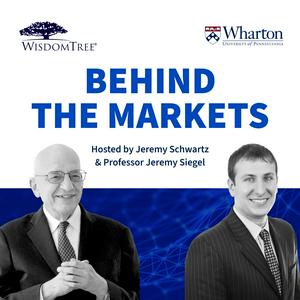
Uzyskaj bezpłatną aplikację radio.pl
- Stacje i podcasty do zakładek
- Strumieniuj przez Wi-Fi lub Bluetooth
- Obsługuje Carplay & Android Auto
- Jeszcze więcej funkcjonalności
Uzyskaj bezpłatną aplikację radio.pl
- Stacje i podcasty do zakładek
- Strumieniuj przez Wi-Fi lub Bluetooth
- Obsługuje Carplay & Android Auto
- Jeszcze więcej funkcjonalności


Behind the Markets Podcast
Zeskanuj kod,
pobierz aplikację,
zacznij słuchać.
pobierz aplikację,
zacznij słuchać.


